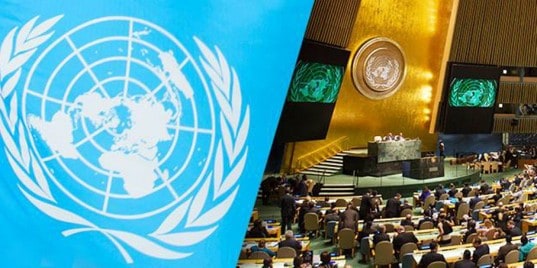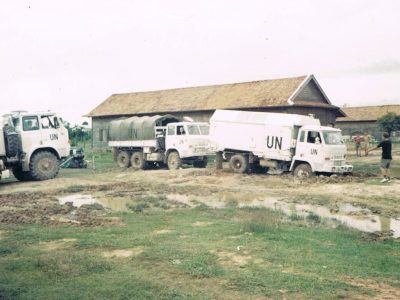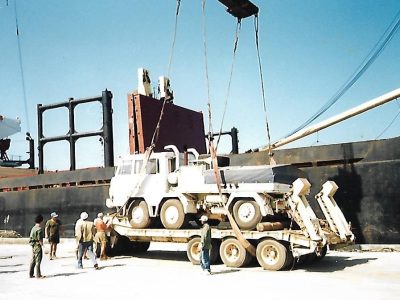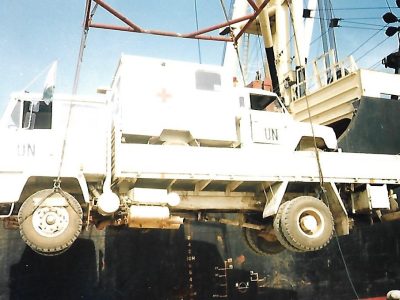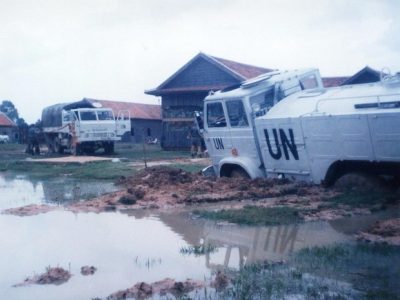BRIEF OUTLINE
The United Nations peacekeeping mission in Cambodia involved Poles - soldiers of the Polish Military Contingent as part of the United Nations International Peacekeeping Force - and civilians in the United Nations Transitional Authority in Cambodia (UNTAC).
Originally, the Polish Military Contingent as a logistics battalion was prepared to participate in the United Nations military peacekeeping mission (MINURSO) in 1991 in Western Sahara. The political and military situation in the operational zone prevented the development of a Polish military unit. In the meantime, another urgent need arose for the involvement of the UN administration and military forces in the Far East in Cambodia.
In December 1991, Poland received an invitation to participate in the planned mission.
In March 1992, a UN Security Council resolution decided to
on the establishment of the United Nations Transitional Administration in Cambodia (UNTAC), it was created to end the civil war in Cambodia.
Again, intensive work began to transform the PKW from operating in the dry Sahara desert to the humid Cambodian jungle.


Refresh stockpiles, replenish equipment and train staff.
- On 11.05.1992, the first Polish officers arrived at Headquarters in the capital Phnom Penh
- On 21.05.1992, the first wave of 72 PKW soldiers with their equipment flew on US Army C-5 Galaxy transport planes from Warsaw's Okęcie airport to Bangkok to travel to Phnom Penh via dilapidated roads.
- On 1.06.1992, a Danish flag ship with a 6-person escort carrying essential PKW equipment sailed from the port of Gdansk to reach the Cambodian unloading port of Sihanukville after a 35-day voyage on 5 July1992 .
- The main force of PKW UNTAC moved by air transport from 14.06 - 14.07.1992.
UNTAC's PKW numbered 718 soldiers and military personnel.
Polish civilian personnel employed by the UN reached the mission area at various times outside the PKW.
Polish soldiers performed mandated tasks in UNTAC in 4 major components:
- six logistics support companies as part of an international logistics battalion under the command of an officer from Pakistan;
- in one of the engineering army groups under the command of a Polish officer;
- in the Central Supply Depot under the command of a Polish officer;
- at UNTAC Headquarters.
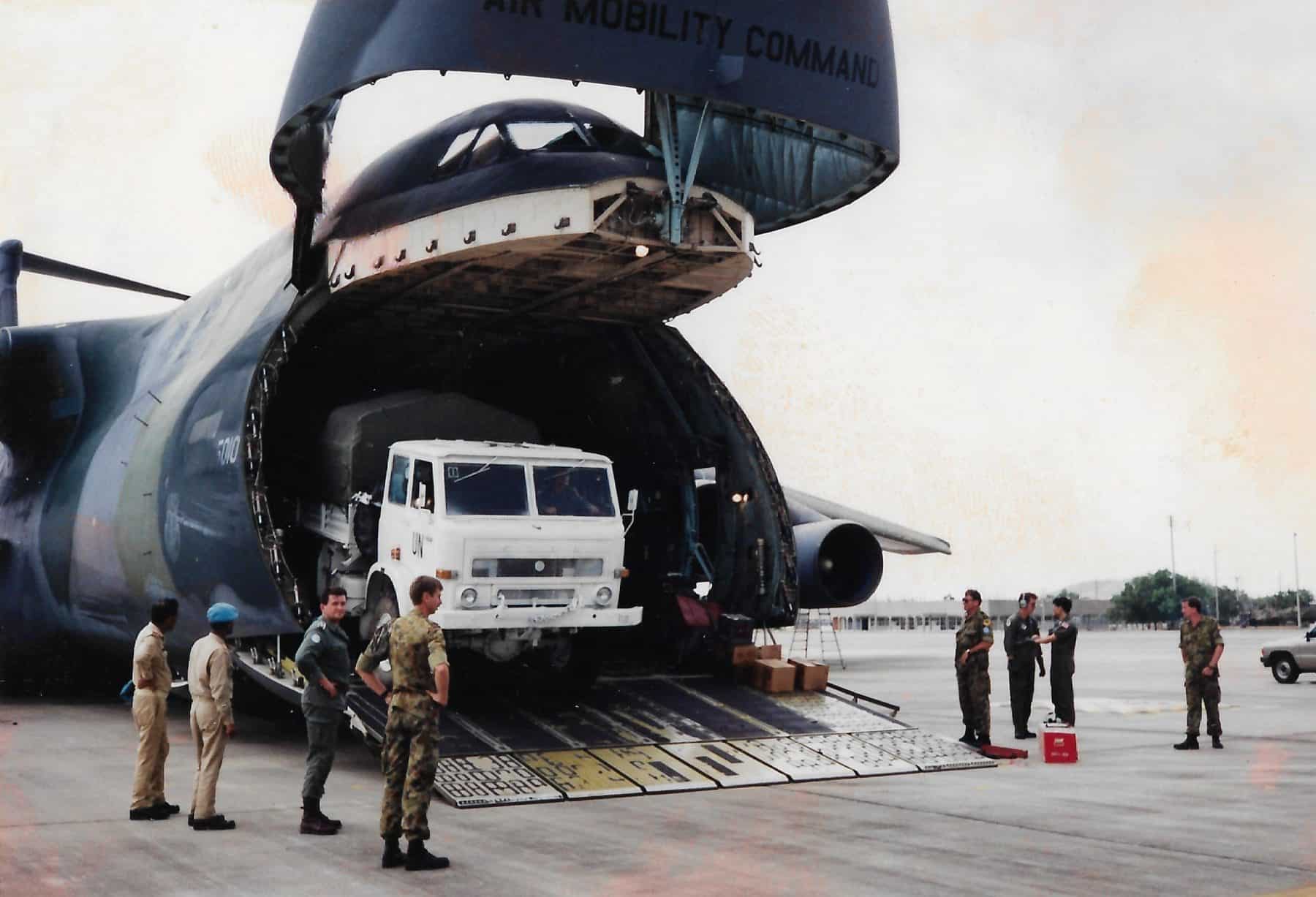
The subdivisions were deployed at eight major bases across Cambodia.
The tasks of the PKW were in the nature of providing a certain level of logistical support to the national military contingents participating in the mission and the civilian component of UNTAC. In total, some 22,000 civilian and military personnel from 29 countries participated in the UNTAC mission.
Every military peacekeeping mission has developed its own procedures that define how to behave in various situations, but unfortunately not all circumstances can be anticipated.
This was also the case in Cambodia, no one could have foreseen the plane crashes in Siem Riep and Stung Treng in which our soldiers were injured, the road accidents in which our colleagues died and remained forever on Cambodian soil, or that logistic subdivisions not prepared for direct combat would have to repel Khmer Rouge subdivisions experienced in jungle combat attacking them as happened in April and May 1993, in 4 kwlog, in Siem Reap, in 5 kwlog, in Kompong Thom, in 3 kwlog, in Kompong Cham.
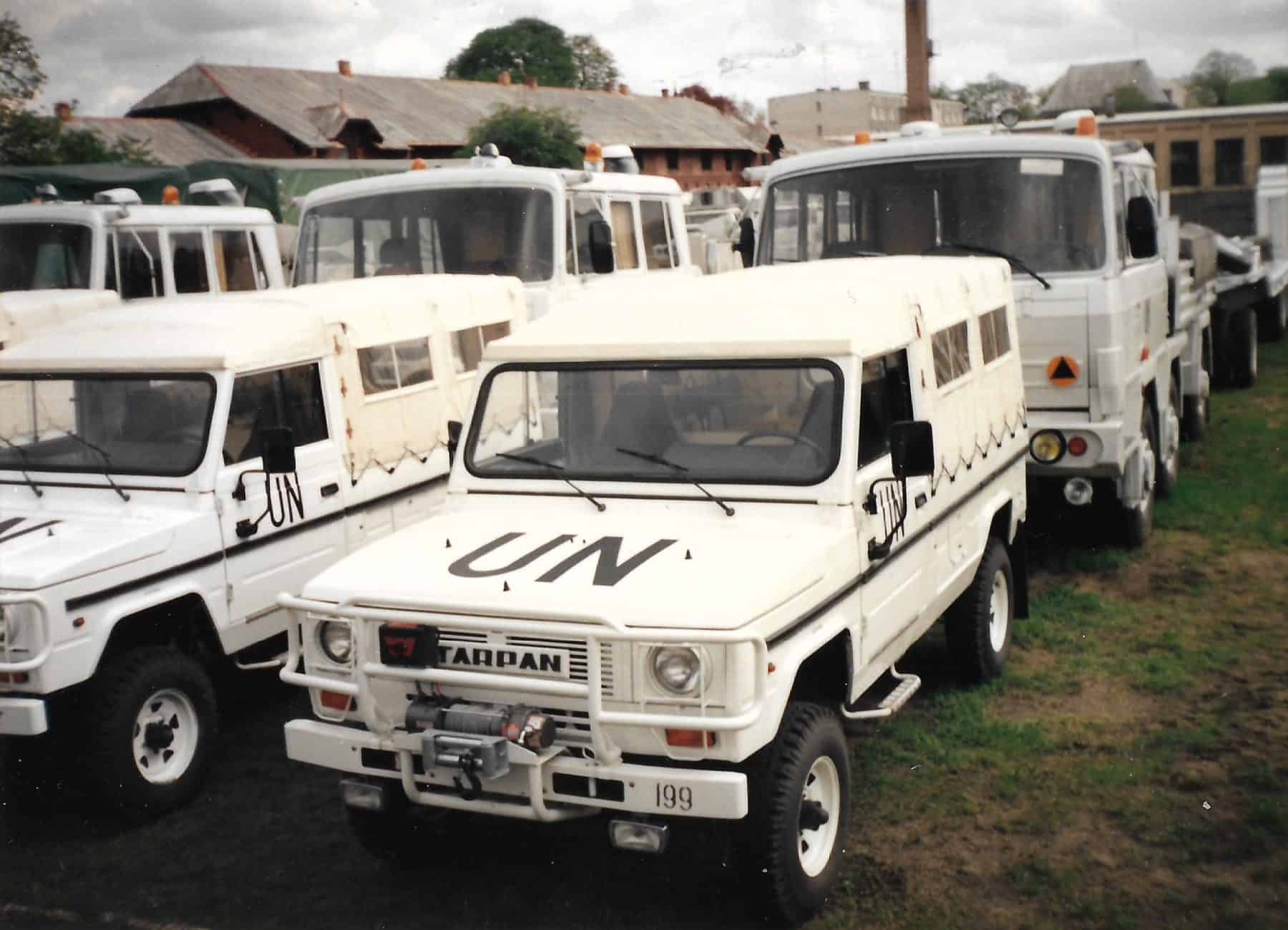
When leaving for the mission in Cambodia, none of the soldiers expected to participate in the first exchange of fire since the end of the Second World War defending against an attacking enemy. But the fact that this was the first real exchange of fire was also realised many years later, even though Polish soldiers had previously participated in dangerous military missions in many places around the world.
The experience gained over several months in Cambodia and the professionalism of our soldiers made it possible to avoid casualties during this fighting.
In May 1993, UNTAC fulfilled the main objective of the mission, with the successful holding of parliamentary elections in which over 4 million Cambodian citizens participated. Unfortunately, it was not possible to successfully disarm the Khmer Rouge, who, during their several-year rule, slaughtered, according to international estimates, between 1 and 2 million of their fellow citizens and continued to make their presence felt for several more months
In late June/early July 1993, UNTAC began to withdraw its first elements. The principle evacuation of PKW began in August and continued until November 1993.

The return of the PKW was by two means - personnel by air and equipment similarly to the mission area, by sea.
Only Polish military observers and officers in charge of depot decommissioning remained in Cambodia until 1994.
During the mission, more than 1,200 soldiers performed mandated tasks, some of whom were replaced in the main rotation in January 1993.During the mission, the PKW was commanded by: - Lt Col Tadeusz Jędrzejczak until the first rotation, and Lt Col Kazimierz Zawieliński after the rotation. At the same time the highest positions in the military structure of UNTAC - the head of logistics of the mission were held respectively by Col Kazimierz Giłej
and Colonel Krzysztof Mamczur.
UNTAC's PKW performed its mandated tasks in an exemplary manner despite,
that, at the time, it was the most difficult mission that Polish soldiers were carrying out
in peacekeeping missions under the UN blue flag in terms of: terrain reconnaissance, equipment, emoluments and social conditions. It was a mission in a period of political, economic and military transformation of our country. We were first stigmatised in the media and then forgotten, but we did our soldierly duty.
with honour as befits a Polish soldier and we are proud of this.
Compiled by Krzysztof KOZACZUK
Read more about the mission:
https://pl.m.wikipedia.org/wiki/Tymczasowa_Administracja_ONZ_w_Kambodży


